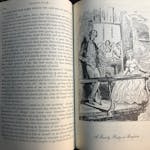When we last met Selin, the singular protagonist of Elif Batuman's Pulitzer Prize-finalist novel "The Idiot," she spent the summer after her Harvard freshman year teaching in a Hungarian village, an opportunity that Ivan, her ambiguous love interest, encouraged her to pursue. As "Either/Or" opens, Selin arrives back at Cambridge in 1996, puzzled by Ivan's lack of romantic advances while she visited his hometown.
Selin, a Turkish-American Russian literature major who "was unlike other people in so many ways," including her fresh examination of the world, her never-been-kissed status, and her size 11 1⁄2 feet, seldom obeys convention.
Neither does Batuman, who plunges into "Either/Or" without recapping Selin's "Idiot" year. Luckily, Selin's friend Svetlana provides a summary, noting that Ivan "terrorized her with ambiguous e-mails about sex, even though he already had a girlfriend, and led her on a wild-goose chase to a Hungarian village, and then he disappeared, and now he won't talk to her."
Heartbroken Selin analyzes what happened through her favorite methods — reading, thinking, e-mailing and observing. Selin embarks on a quest to move past Ivan, get her groove back and enjoy a hot girl summer, but these classic literary-heroine pursuits will play out in entirely unexpected and hilarious ways, in part because Selin's so skilled at noticing flourishes of the bizarre within the mundane. "Could its name really have been 'Grimace'?" she asks of the cheerful purple McDonald's blob character.
Selin views college classes not as occupational training, but as avenues for understanding life. She's dissatisfied with the available majors: "Why were the most important subjects addressed only indirectly? Why was there no department of love?" She picks up Kierkegaard's "Either/Or" and "The Seducer's Diary" as she tries to discern the rules for love, and when she reads the 1995 bestseller "The Rules: Time-Tested Secrets for Capturing the Heart of Mr. Right" it confirms what she gleaned from Kierkegaard, Flaubert and her experience with Ivan.
"Nothing in 'The Rules' was news, exactly: the eternal defeat of non-lame women, the worthlessness of their 'honesty,' the way they so often ended up marrying lame guys whom they had initially rejected as tedious."
While love's pursuit provides the surface tension of "Either/Or," Selin also investigates the nature of conquest and resistance, dominance and submission. Even Pilates offers lessons for Selin: "The logistics of mat placement was deeply stressful, in a way that made me feel like I understood the primal conflicts for land that formed the basis of modern history."
The 1990s, in retrospect, were an era of falling walls and freely unfurled Pilates mats. At Selin's Ukrainian Research Institute job, the scholars are touchy about people who "assumed that some word in Ukrainian was the same as in Russian."
Selin makes summer plans blithely, signing on to update the "Let's Go" guide to Turkey, including a stop at a Syrian border town, followed by an internship in Moscow. Current global calamities haunt these funny passages, enhancing the novel's atmosphere of bittersweet longing.
If "The Idiot" was a tale of innocence, "Either/Or" is a chronicle of experience that will leave Batuman's fans clamoring for an account of Selin's junior year.
Jenny Shank's story collection, "Mixed Company," won the George Garrett Fiction Prize and is a finalist for the Colorado Book Award and her novel, "The Ringer," won the High Plains Book Award.
Either/Or
By: Elif Batuman.
Publisher: Penguin Press, 360 pages, $27.





